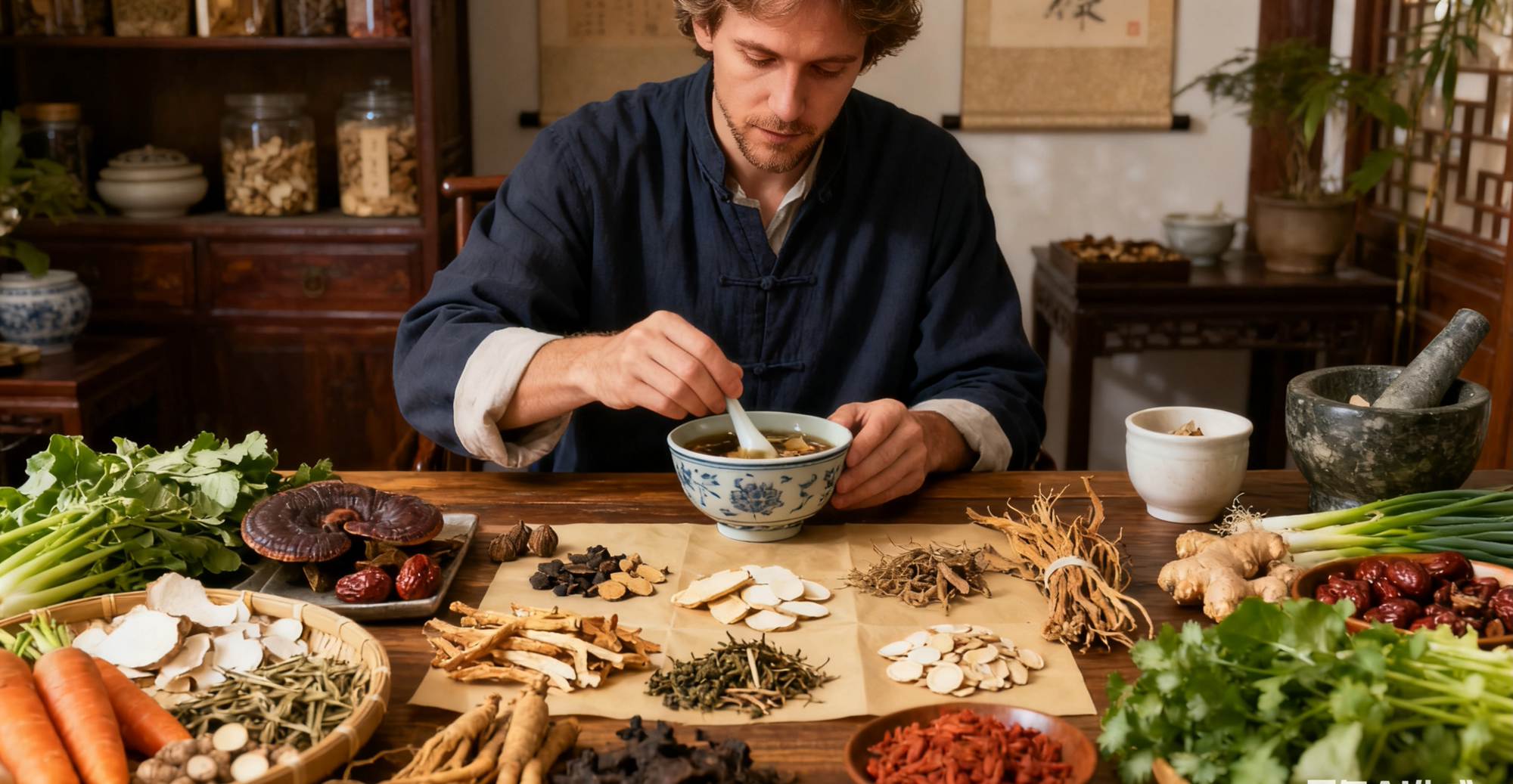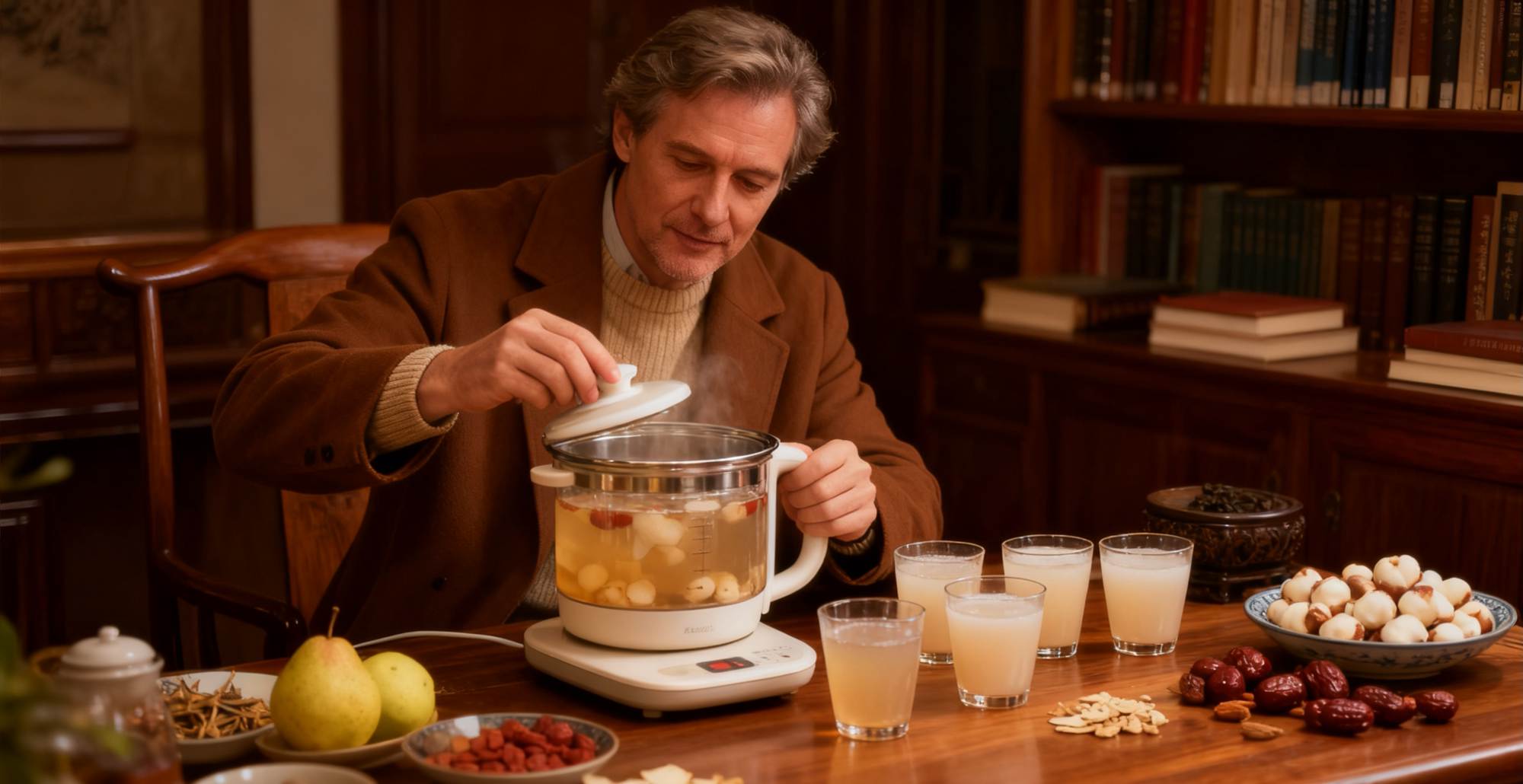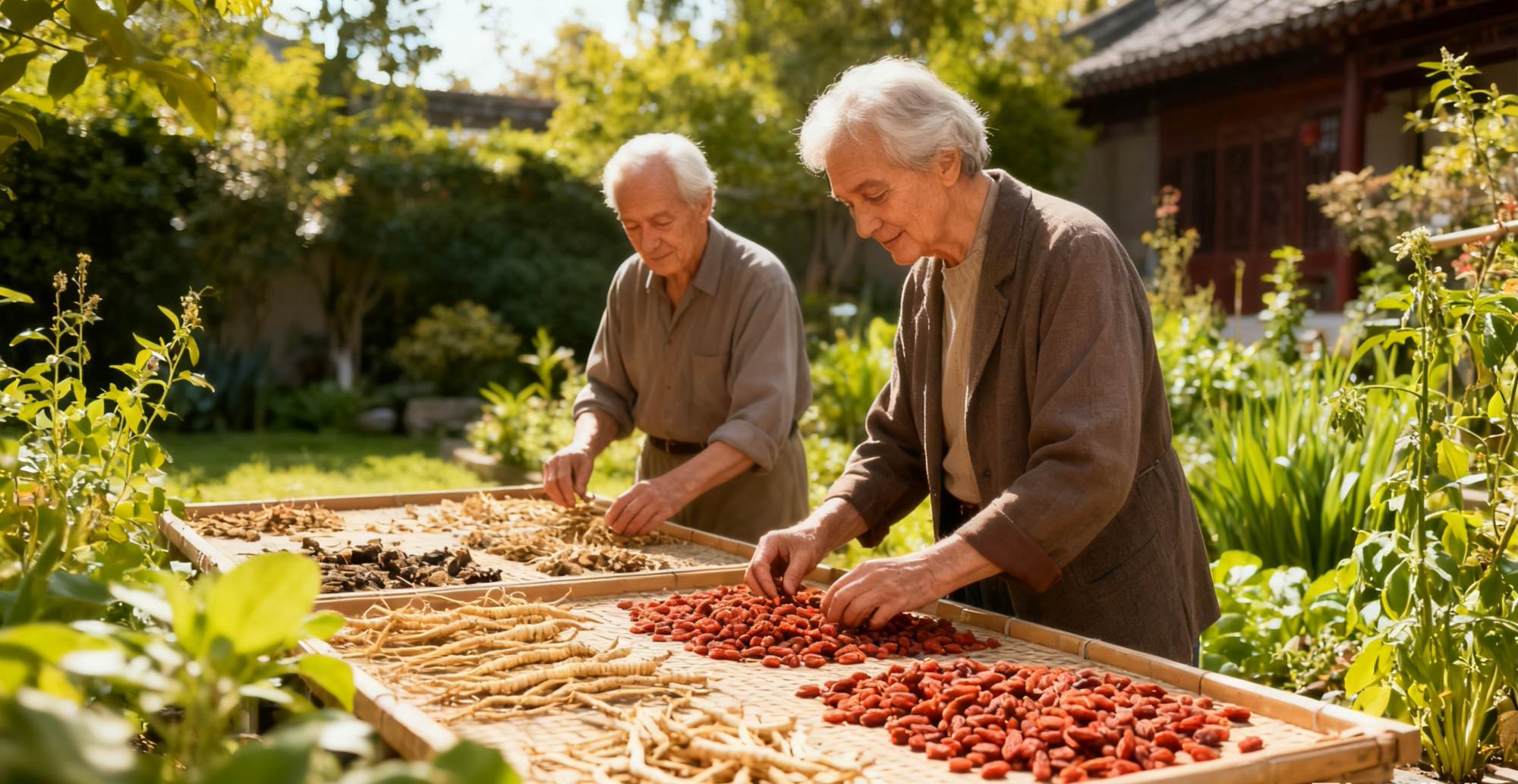With the improvement of people's living standards and the enhancement of health awareness, traditional Chinese medicine dietary therapy has received increasing attention. However, its misuse also carries hidden risks. Many people have questions about dietary therapy: What is the difference between dietary therapy and health supplements? Which Chinese herbs can be used in dietary therapy? How should one eat for dietary therapy in autumn? Xie Junda, Deputy Chief Pharmacist of the Pharmacy Department of Beijing Friendship Hospital, and Ruan Jiaqi, Pharmacist of the Pharmacy Department, answer these questions and teach you to "understand" traditional Chinese medicine and scientific dietary therapy.
content
1. What is Dietary Therapy?
2. What is the difference between dietary therapy and ordinary health supplements?
3. Common Health-Preserving Ingredients and Recipes for Autumn
4. Recipe Recommendations
4.1 Spring
4.2 Summer
4.3 Autumn
4.4 A warming and nourishing winter tonic
5. Common Suitable Populations and Contraindications for Traditional Chinese Medicine Dietary Therapy
6. Recommended common dietary therapy recipes
6.1 Astragalus and Wolfberry Tea
6.2 Angelica and Ginger Mutton Soup
6.3 Yam and Lotus Seed Porridge
6.4 Lily Bulb and Tremella Soup
7. Summary
8 Frequently Asked Questions

1. What is Dietary Therapy?
Dietary therapy is a method of regulating the body through daily diet to prevent or assist in the improvement of diseases. Its core lies in a balanced diet, individualized dietary therapy based on syndrome differentiation, and a diverse range of ingredients. Dietary therapy is not a substitute for drugs, but it can adjust the constitution and alleviate symptoms through natural foods. Dietary therapy requires long-term adherence, combined with regular rest and exercise, to achieve better results.
2. What is the difference between dietary therapy and ordinary health supplements?
Dietary therapy, in principle, falls under the category of ordinary dietary nutrition foods; ordinary health supplements are not classified as food but rather as health foods. The core difference between dietary therapy and health supplements lies in the fact that dietary therapy consists of ordinary food, used solely for nutritional supplementation, while health supplements require approval from national regulatory authorities and must obtain an approval number.
3. Common Health-Preserving Ingredients and Recipes for Autumn
Autumn weather is relatively cold and dry, making it suitable to eat more foods that clear the lungs, moisten dryness, and quench thirst. Examples include lily bulbs, white fungus, pears, almonds, mulberry leaves, sand ginseng, honey, yam, sea buckthorn, dendrobium, water chestnuts, and lotus root.
Those who catch a cold from outdoor activities should consume foods that dispel cold and relieve exterior symptoms, such as ginger, jujubes, scallions, almonds, and perilla leaves. At this time, it is not suitable to consume beef or mutton for nourishment.
In fact, Traditional Chinese Medicine emphasizes maintaining health in accordance with the four seasons and advocates eating more seasonal ingredients. Different seasons call for different foods: in spring, nourish the liver with leafy green vegetables; in summer, choose mung beans to clear heat and relieve summer heat; in autumn, eat pears to moisten dryness; and in winter, eat walnuts and chestnuts for warming nourishment.
For example, the saying "eat radish in winter and ginger in summer" is a common practice in daily dietary therapy and health preservation. Radishes aid digestion, help with gas expulsion, and are rich in vitamin C, dietary fiber, etc.; ginger can stimulate appetite, relieve nausea, dispel cold, and relieve exterior symptoms, and is rich in various vitamins and minerals.

4. Recipe Recommendations
Here are some recommended seasonal health-preserving dietary therapy recipes:
4.1 Spring
Shepherd's Purse and Tofu Soup (100g shepherd's purse + 1 block of soft tofu), which can clear the liver and improve eyesight.
4.2 Summer
Lotus Leaf and Winter Melon Tea (10g lotus leaf + 20g winter melon peel boiled in water), which can prevent heatstroke and dizziness.
4.3 Autumn
Five-Juice Drink (1000g pear juice, 500g water chestnut juice, 500g lotus root juice, 500g fresh ophiopogon japonicus juice, 100g fresh reed rhizome juice), which can quench thirst, clear heat, and relieve irritability.
4.4 A warming and nourishing winter tonic
Angelica sinensis and ginger mutton soup (10g Angelica sinensis + 20g ginger + 500g boneless, diced mutton) can dispel cold and warm the body.

5. Common Suitable Populations and Contraindications for Traditional Chinese Medicine Dietary Therapy
Traditional Chinese medicine dietary therapy is mainly suitable for sub-healthy individuals, who often have low immunity and, from a TCM perspective, tend to have deficiencies in Qi, Blood, Yin, or Yang. Astragalus membranaceus, Codonopsis pilosula, and American ginseng are commonly used for those with Qi deficiency; Angelica sinensis, jujube, donkey-hide gelatin, and longan pulp are commonly used for those with Blood deficiency; Rehmannia glutinosa, Ophiopogon japonicus, lily bulb, Dendrobium nobile, and wolfberry are commonly used for those with Yin deficiency; and cinnamon and dried ginger are commonly used for those with Yang deficiency.
6. Recommended common dietary therapy recipes
6.1 Astragalus and Wolfberry Tea
Suitable for those with Qi deficiency and fatigue, prone to colds, and low immunity. Use with caution if you have a Yang-dominant constitution (prone to heatiness) or are in the early stages of a cold with fever.
6.2 Angelica and Ginger Mutton Soup
Suitable for those with blood deficiency and aversion to cold, cold hands and feet, and menstrual discomfort. Use with caution if you have yin deficiency with excessive internal heat (dry mouth and tongue, hot flashes in the palms, soles, and chest) or are prone to getting overheated.
6.3 Yam and Lotus Seed Porridge (Yam, Lotus Seeds, Rice)
Suitable for those with weak spleen and stomach, indigestion, and insomnia. No obvious contraindications, but lotus seeds are slightly difficult to digest and should not be consumed in excess.
6.4 Lily Bulb and Tremella Soup (Lily Bulb, Tremella, Rock Sugar)
Suitable for those with dry cough due to lung dryness, insomnia, and dry skin. Use with caution if you have an initial cough due to external wind-cold (cold-induced cold) or spleen and stomach deficiency (prone to diarrhea).

7. Summary
Dietary therapy is not suitable for all sub-healthy individuals. Some people with poor constitution may experience "inability to tolerate tonics," instead exhibiting symptoms such as overheating, abdominal distension, and diarrhea. This is mainly related to dysfunction of the spleen and stomach.

8 Frequently Asked Questions
8.1 Is "Soaking Goji Berries in a Thermos" Really Suitable for Everyone?
Goji berries are sweet and mild in nature, and enter the liver and kidney meridians. They nourish the liver and kidneys, benefit essence and improve eyesight. They are mainly used for deficiency of essence and blood, lower back and knee pain, dizziness and tinnitus, internal heat and thirst, blood deficiency and chlorosis, and blurred vision. They belong to the category of tonifying Chinese medicine. Those with colds, inflammation, spleen and stomach deficiency, prone to internal heat, diabetes, and children should be especially cautious or avoid long-term consumption.
Those with colds and fever should not consume them as they may worsen their condition. Excessive consumption by those with yin deficiency and excessive internal heat can easily cause symptoms such as dry mouth, sore throat, and swelling. They should be combined with cooling herbs to neutralize the heat or avoided altogether. Patients with inflammation and infection, such as those with oral ulcers or peptic ulcers, may experience accelerated inflammation. Those with weak spleen and stomach may experience indigestion and diarrhea, especially during acute gastroenteritis.
Goji berries are a type of tonic in traditional Chinese medicine. In addition, there are reports that goji berries may cause fluctuations in blood pressure or increase blood sugar. Patients with hypertension/diabetes should strictly control the dosage and monitor blood pressure and blood sugar changes when necessary.

8.2 Hawthorn aids digestion; when is the best time to consume it? What is the difference between hawthorn and digestive tablets?
Hawthorn has the effect of aiding digestion and strengthening the stomach, and is especially suitable for consumption after meals. Consuming hawthorn after meals can effectively promote digestion and relieve bloating, especially for indigestion caused by meat. The organic acids and enzymes in hawthorn can stimulate gastric acid secretion, enhance digestive enzyme activity, and help break down food.
Although some believe that consuming a small amount of hawthorn before meals can stimulate the appetite, most recommend consuming it after meals for safety and effectiveness. Consuming hawthorn on an empty stomach may irritate the gastric mucosa, leading to excessive gastric acid and even the formation of bezoars. Therefore, to avoid discomfort, the best choice is to consume hawthorn after meals.
The effects of hawthorn and digestive tablets are similar but different. Simply put, hawthorn focuses more on "aiding digestion," especially effective for indigestion caused by meat. Jianwei Xiaoshi tablets, on the other hand, take into account both "strengthening the spleen" and "aiding digestion," making them more suitable for people with weak spleen and stomach function.



